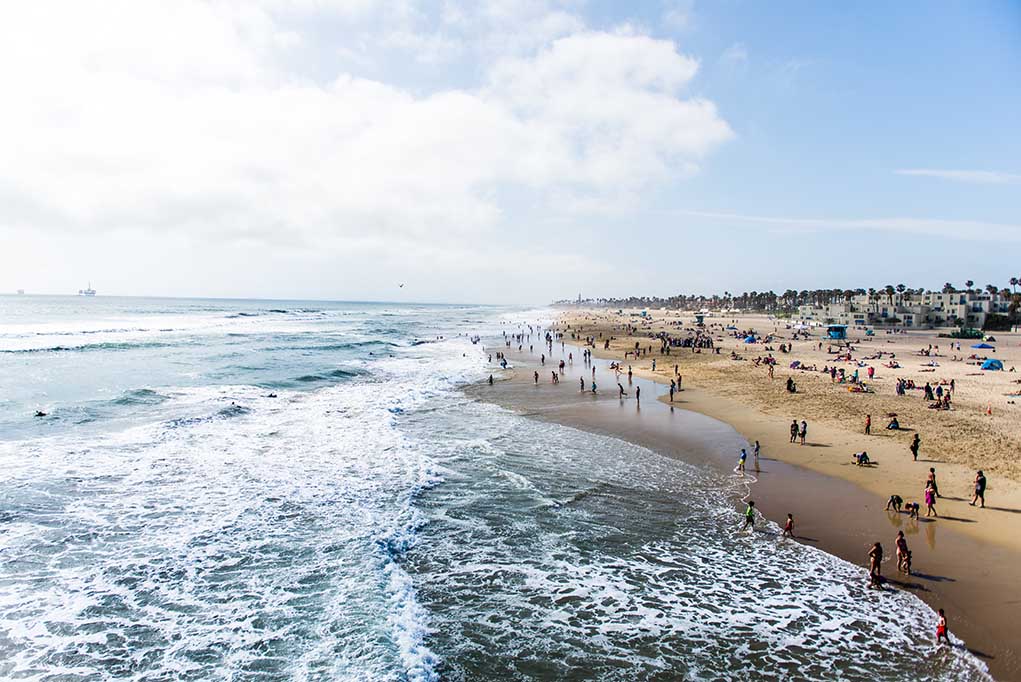
China’s massive investment in Bahamian infrastructure just 50 miles from Florida’s coast is raising serious national security concerns among U.S. defense experts and legislators.
Key Takeaways
- China has invested billions in Bahamian projects including a $3 billion mega-port and the Baha Mar Resort, establishing a significant presence just 50 miles from Florida
- Retired Rear Adm. Peter Brown warns that Chinese-controlled properties like the British Colonial Hotel in Nassau (across from the U.S. Embassy) could be used for intelligence gathering
- The Bahamas holds strategic importance due to U.S. military testing corridors and space launch paths that pass through its territorial waters
- Senator Marco Rubio has cautioned that China uses aid and investment, particularly after crises like Hurricane Dorian, to gain influence near American shores
- Florida Governor Ron DeSantis has implemented measures to counter Chinese influence, including laws restricting foreign technology purchases and property ownership
China’s Strategic Foothold Near American Shores
China has established a billion-dollar footprint in the Bahamas through numerous infrastructure projects that combine economic development with potential geopolitical advantages. These investments include a $40 million national stadium, a $3 billion mega-port, and $40 million for the North Abaco Port and Little Abaco Bridge. Additionally, the China EXIM Bank has provided over $54 million in loans for highway construction and nearly $3 billion for the Baha Mar Resort. These developments have created a significant Chinese presence just 50 miles from Florida’s coastline, raising alarms among U.S. security experts.
“The People’s Republic of China has been making diplomatic, economic and even military and quasi-military inroads into the Caribbean, South and Central America for the past couple of decades,” said retired Rear Admiral Peter Brown.
Of particular concern is the Chinese-controlled British Colonial Hotel in Nassau, which sits directly across from the U.S. Embassy. Defense experts warn that such properties could serve as ideal locations for intelligence gathering operations. The strategic location of the Bahamas also makes it crucial for U.S. national security interests, as the archipelago sits along military testing corridors and space launch paths from Florida’s Cape Canaveral, making any foreign intelligence presence particularly concerning.
China is Flexing Its Muscle in the Caribbean, and That's a Problem For the United States https://t.co/822KJeTrh6 #China #Bahamas #Geopolitics
— Ward Clark (@TheGreatLander) April 28, 2025
Opportunistic Investment Following Disasters
China’s approach often involves seizing opportunities during crises to build goodwill and economic dependence. Following Hurricane Dorian’s devastation in 2019, concerns were raised about China using disaster aid as a means to expand its influence. Senator Marco Rubio warned specifically about this tactic, suggesting that Beijing would make “the same opportunistic play to access critical foreign infrastructure” during the Bahamas’ period of vulnerability, creating what he described as an “especially perilous” national security threat given the proximity to Florida.
Experts caution that if the United States fails to maintain its position as the Bahamas’ primary ally, China stands ready to fill that role. The risk of losing influence in such a strategically positioned nation could have significant repercussions for U.S. national security, especially given the dual-use potential of many of the infrastructure projects China has funded throughout the region.
Broader Regional Strategy Affecting Florida
China’s influence extends well beyond the Bahamas, encompassing much of the Caribbean and Latin America. From 2005 to 2022, China invested over $10 billion in just six Caribbean countries, creating substantial economic dependencies throughout America’s near abroad. Florida faces particular vulnerability to China’s Caribbean strategy due to its proximity and demographics. Vincent Wang, a political science professor, suggests China’s presence is part of a long-term geopolitical strategy that could eventually influence Florida’s elections and politics.
Governor Ron DeSantis has responded with measures aimed at reducing Chinese influence, including implementing laws against foreign technology purchases and restricting property ownership by Chinese nationals. However, these efforts have faced legal challenges, with the 11th U.S. Circuit Court of Appeals temporarily halting a law banning Chinese nationals from buying property on discrimination grounds.
Military and Security Implications
Beyond economic considerations, China has strengthened military ties with countries like Venezuela, creating additional security concerns for the United States. Defense experts warn of multiple threats stemming from China’s regional presence, including increased dependency on Chinese goods and services, changes in trade standards that favor Chinese interests, and intelligence gathering through port operations and other strategic facilities. Some analysts even suggest that China’s growing presence could facilitate illegal migration to Florida, further complicating the state’s security landscape.
As tensions between the United States and China continue to rise, Florida may increasingly find itself at the center of this geopolitical competition. With China deepening its presence throughout the Western Hemisphere, especially in strategically valuable locations like the Bahamas, American policymakers face growing pressure to develop comprehensive strategies that protect U.S. national security interests while maintaining positive relationships with regional partners.




